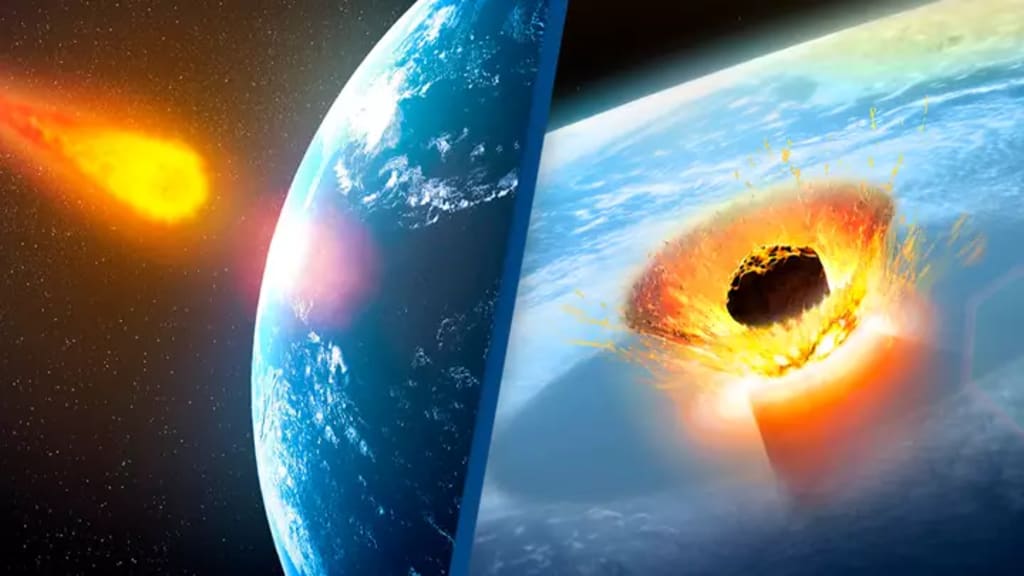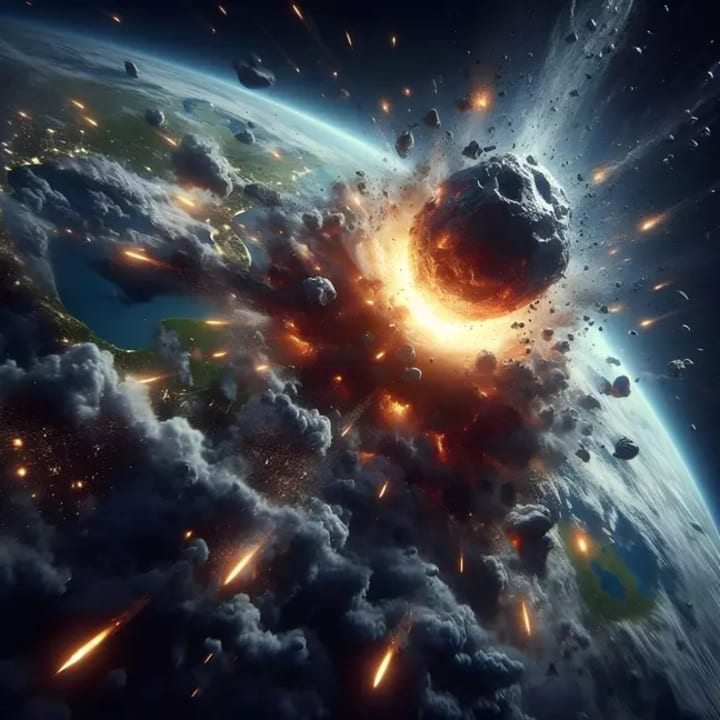NASA reveals what it would do if the world was about to end
NASA

Hopefully none of us will live long enough to see the world end, but NASA has shared its plans for if that situation ever presents itself in the form of an asteroid hurtling towards us.
And if it's any reassurance, it's not just 'close your eyes and pray'.
There are countless movies about what the end of the world might look like, and even more depictions about how humans would react.
While we do fight back in some stories, in others - like Don't Look Up - most of us apparently just choose denial and wait for the end to come.
But let's move away from fictional depictions - what would happen in real life?
According to planetary defense expert Dr. Kelly Fast, NASA's plan for the end of the world starts with trying to stop it altogether.
NASA’s Planetary Defense Coordination Office watches the skies, trying to 'find asteroids before they find us', Dr. Fast said.
"An asteroid impact is the only natural disaster that could be prevented," she explained.
By calculating orbits way into the future, NASA is able to decide whether a deflection mission might be possible to prevent a collision with Earth.
The agency's Double Asteroid Redirection Test (DART) can serve as a possible method of asteroid deflection, and should help us 'better prepare should an asteroid ever be discovered as a threat to Earth'.
In 2021, NASA successfully trialled DART as it crashed an unmanned spacecraft into a small asteroid with the goal of deflecting it away from earth.
However, if NASA isn't able to save the day by blasting the asteroid away from us, it does also have a plan for how to warn us about an impending strike.
The warning would come with the help of a global coalition of astronomers called the International Asteroid Warning Network (IAWN), who would start by verifying their findings and assessing the danger.
Once everyone's in agreement that Earth should brace for impact - assuming there are no Don't Look Up-style holdolds - NASA would send out an alert to the White House, after which the government would release a statement to the public.
Lindley Johnson, Lead Program Executive for the Planetary Defense Coordination Office, told Business Insider: “I don’t have a red phone on my desk or anything. But we do have formal procedures by which notification of a serious impact would be provided.”
If the threat is international, IAWN would notify the United Nations Office of Outer Space Affairs.
It would only be too late to save the Earth if NASA spotted an impact only a few months before it was due to strike. At that point, it really would be close your eyes and pray.
However, as long as NASA stays aware of the objects hurtling around space well in advance, we should be able to avoid the need for public alerts.

NASA, the space folks, have a plan if our world was in big trouble, like if it was about to end. They've got some smart ideas, and they're sharing them with us.
First off, they'd keep an eye on anything dangerous coming our way from space, like big rocks or comets. If they spotted something heading our direction, they'd try to figure out a way to stop it or at least warn us.
Then, they'd work with other space agencies and experts to see if there's a chance to save humanity. This might mean building special spaceships to carry people away from Earth or finding a new place for us to live.
But if there wasn't enough time for that, they'd focus on helping us here on Earth. They'd share information with governments and organizations to help them prepare for disasters and keep people safe.
Overall, NASA's plan is all about keeping us safe, whether it's by stopping a space rock or helping us get ready for tough times. It's good to know there are smart folks looking out for us, just in case the worst happens.





Comments
There are no comments for this story
Be the first to respond and start the conversation.